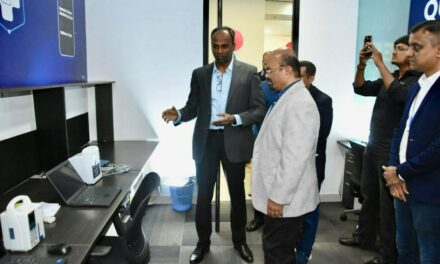Royal Philips announces that it has forged a technology partnership with the University of California, San Francisco (UCSF). Under the deal, UCSF will use Philips HealthSuite to oversee the development of technologies that leverage artificial intelligence to enable personalization and make it easier for patients to select providers, access their health information, and receive virtual care at home, while also easing the burden on care providers with real-time decision support.
Moreover, Philips’ open application programming interface-based ecosystem will foster the level of third-party innovation that, combined with UCSF’s clinical expertise, can achieve these goals. With end-to-end interoperability and orchestration, the cloud-based system enables Philips’ products, systems, devices, and services to work with those developed by partners and third parties, reflecting the diversity of delivery systems and technology partners held by both Philips and UCSF.
Address Lack of Interoperability
The work will address the significant challenge of integrating data from the multitude of often incompatible software systems that generate and track patient information, a problem that is intensifying as health systems expand their networks and extend care beyond hospitals and clinics into the community. The lack of interoperability often requires manual re-entry or hunting down of data among the different systems. Integrating these different data streams will ease the burden on clinical staff, provide better analytics, and enable more coordinated orchestration of care across diverse settings.
“Our goal in partnering with Philips is to serve our patients better,” said Aaron Neinstein, MD, associate professor of medicine and director of clinical informatics at UCSF’s Center for Digital Health Innovation. “The services we enable on this platform will help people more easily find the right provider for the care they need, eliminating the worries and delays people often experience.
“We know that people need convenient access to care, whether for their acute symptoms or chronic conditions, and we can provide a more comprehensive, continuous feeling of support from their care team enabled by virtual and in-person experiences across their care journey,” Neinstein adds.
Moreover, the agreement includes a combination of applied research and digital solution implementation, ranging from developing advanced AI algorithms and virtual care delivery solutions to enable a more continuous, connected care experience, to connecting multiple hospitals to better coordinate a patient’s care journey. The partners will create and share best practices with the healthcare industry, focused on advancing the quadruple aim: better healthcare, at lower cost, with improved outcomes, while enhancing the experience for both patients and staff.
“We need to work together if we are going to move healthcare forward, and we are inspired by UCSF’s willingness to push the boundaries of technology innovation and transform care for their patients,” says Vitor Rocha, chief market leader for Philips North America and member of the executive committee. “As consumers, we have come to rely on technology to make our lives easier, such as trusting the cloud to manage our financial data, our commerce and our education. With this partnership, we are looking to simplify healthcare in the same way and make technology solutions pay dividends when it comes to the patient’s time and health.”





